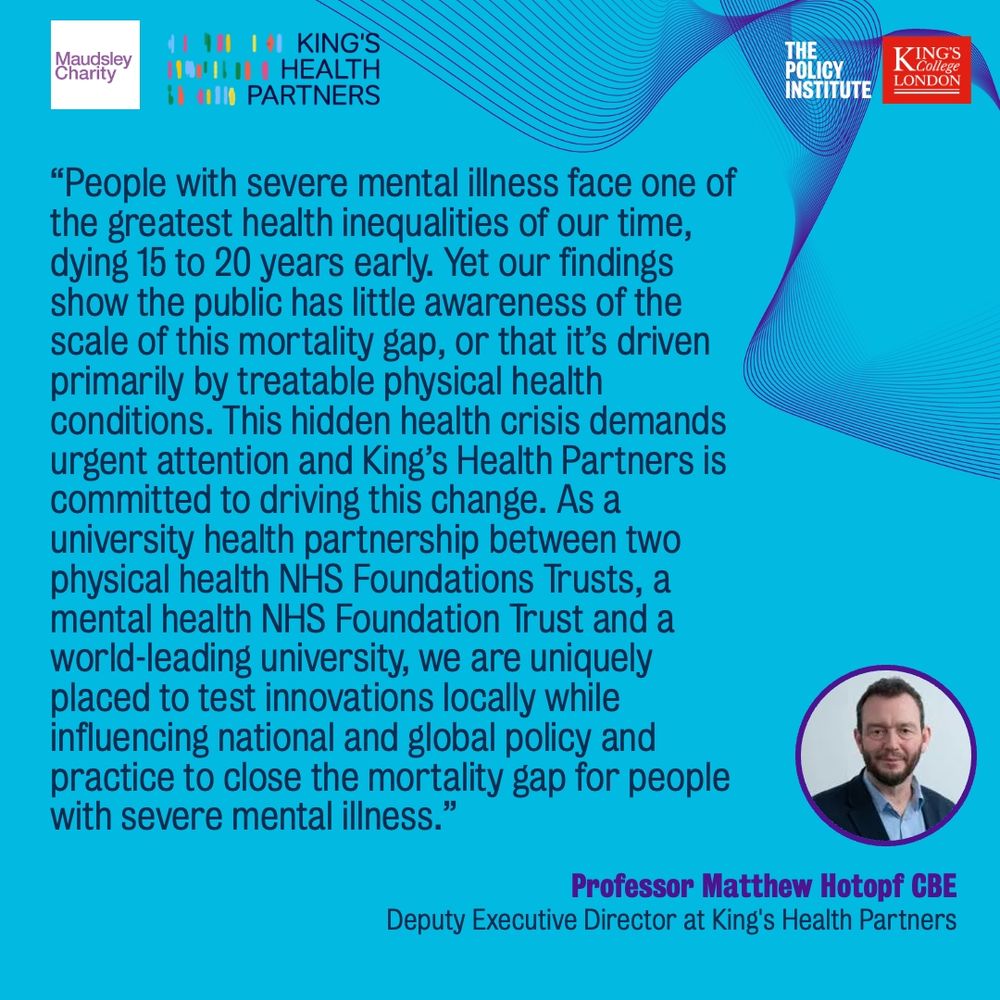
Event invites & updates ➡️ https://kcl.us14.list-manage.com/subscribe?u=1fbc849719098ca1a31f3263e&id=9ba63cb1ff
Read the research in full ➡️ www.kcl.ac.uk/news/life-ex...

Read the research in full ➡️ www.kcl.ac.uk/news/life-ex...





Half the public (50%) believe this to be the case, when it in fact accounts for roughly 9% of excess mortality among this group

Half the public (50%) believe this to be the case, when it in fact accounts for roughly 9% of excess mortality among this group


➡️ www.kcl.ac.uk/events/broke...

➡️ www.kcl.ac.uk/events/broke...
@elielcohen.bsky.social, co-author of the paper

@elielcohen.bsky.social, co-author of the paper
Richard Salter, co-author of the paper

Richard Salter, co-author of the paper

